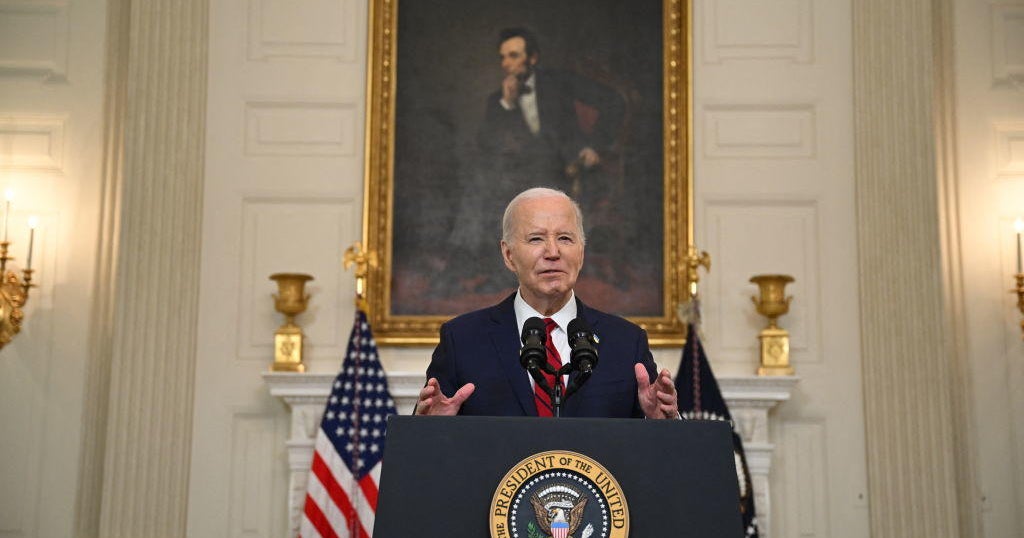House passes package on sanctions in Russia, Iran and North Korea
The U.S. House passed a sweeping package of bills on Russia, Iran and North Korea sanctions Tuesday in a 419-3 vote, sending the legislation to the Senate for almost certain passage and likely making it veto-proof.
The measure -- a reprimand for Russian interference in the 2016 election cycle, among other things -- requires congressional approval before the president can ease or lift sanctions. The White House had criticized attempts to limit the president's sanctions powers, but the legislation's solid bipartisan support may be forcing the president's hand. White House press secretary Sarah Huckabee Sanders said on Monday night aboard Air Force One said the president is "looking over" where the legislation stands at this point.
"The president has been very vocal about his support for continued sanctions on those three countries," Sanders told reporters. "He has no intention of getting rid of them, but he wants to make sure we get the best deal for the American people possible. Congress doesn't have the best record on that."
Negotiators from the House and Senate came to an agreement on the legislation in recent days after it garnered overwhelming support in the Senate but stalled in the House. The Senate originally passed the legislation in a 98-2 vote in mid-June, but the House claimed the measure violated a clause in the Constitution that says bills that raise revenue for government must originate in the House.
Sen. Ben Cardin of Maryland, the ranking Democrat on the Senate Foreign Relations Committee, said the agreement was reached after "intense" negotiations.
"A nearly united Congress is poised to send President Putin a clear message on behalf of the American people and our allies, and we need President Trump to help us deliver that message," Cardin said in a statement over the weekend.
Although the Countering Iran's Destabilizing Activities Act also punishes North Korea and Iran for their aggression, the Russia portion of the legislation has received the most attention, given Mr. Trump's reluctance to criticize Russian President Vladimir Putin or acknowledge Russian meddling in the election. The White House has focused on the need to stand up to Russia instead because of its intervention in Ukraine and Crimea.
According to the latest version of the legislation, Mr. Trump would have to send a report for any plan to ease sanctions to Congress, and Congress would have 30 days to accept or reject the plan.
Senate Minority Leader Chuck Schumer (D-New York) praised the measure's passage in a statement Tuesday.
"The House vote on this tough sanctions bill sends a message to President Putin that meddling in U.S. elections will not be tolerated," Schumer said.
"Senate Republican leaders should move this bill as soon as possible, so that it can be on the president's desk without delay. Passing the bill on a bipartisan basis will send a strong signal to the White House that the Kremlin needs to be held accountable for meddling in last year's election."



